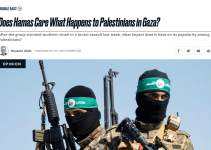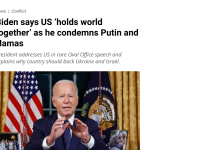The city of Derna in Libya has recently experienced a devastating tragedy that has brought attention to the country's ongoing struggles and divisions. Many hope that this event will not be ignored like previous Libyan calamities, but instead serve as a catalyst for positive change. Derna's suffering serves as a lesson for Libya's elites, highlighting the consequences of division and self-interest. While the city has faced numerous challenges, such as infrastructural decay, economic neglect, and unpreparedness for climate change, understanding the scale of its destruction requires recognizing its historical role as a hub of intellectualism and dissent.[0]
Since the 2011 revolution that overthrew Muammar Qaddafi, Libya has faced significant suffering and misery.[0] However, the recent Storm Daniel stands out as a unique event that exposes the divided and ineffective governance in the country. Derna, located in the eastern part of Libya, falls under the rule of strongman Khalifa Haftar, while the western part is governed by the internationally recognized Government of National Unity.[0] The catastrophic flooding caused by Storm Daniel has resulted in the deaths of at least 5,300 people, with potentially thousands more missing.[1] Derna, in particular, has been severely affected, with approximately a quarter of the city being washed away after two dams collapsed. Over 34,000 people have been displaced, and the city remains without basic utilities such as phone lines and electricity.[1]
The scenes of destruction in Derna are heart-wrenching, with overflowing morgues, mass burials, and rescuers desperately searching for bodies.[0] The collapse of the dams unleashed an estimated 30 million cubic meters of water onto the city, erasing entire neighborhoods.[2] Current estimates suggest that around 11,300 people have died, a number that may double in the coming days.[2] The city's mayor even fears that the death toll could reach 20,000.[3] The devastation caused by the flooding has set back Derna's path to recovery by several years, exacerbating the existing conflicts and challenges faced by its inhabitants.
The international community, including organizations like UNICEF, has responded by providing emergency aid to those affected by the disaster. UNICEF has been supporting children in Libya since 1957 and has mobilized essential supplies such as medical aid, hygiene kits, water treatment materials, and clothing kits for children.[4] However, the organization requires at least $6.5 million to provide urgent lifesaving interventions in Derna and other affected areas. The immediate priorities include safe drinking water, medical supplies, psychosocial support, and family tracing.[5]
Derna's geography played a significant role in the scale of the disaster.[6] The city is located at the end of a long, narrow valley called a wadi. The collapse of the dams along the Wadi Derna resulted in floodwaters sweeping through the city, washing away roads and entire neighborhoods. While engineers were aware of the dams' vulnerabilities, warnings were not heeded, leading to the catastrophic consequences.[7]
The fragmented political situation in Libya further complicates rescue missions and aid delivery.[8] The country has two rival governments, with conflicting interests and priorities.[8] This division hampers relief efforts, as countries must decide whether to provide aid to the capital or support Haftar's administration in Benghazi.[8]
The tragic events in Derna highlight the urgent need for unity and effective governance in Libya. The suffering and loss of life serve as a wake-up call for the country's leaders and elites, emphasizing the costs of division and self-interest. It is crucial that the international community provides support and assistance to the affected areas, ensuring that the immediate needs of the people are met. By addressing the underlying issues of division, neglect, and unpreparedness, there is hope that lasting and positive change can be achieved in Libya, preventing future tragedies like the one experienced in Derna.
0. “Libya's Unnatural Disaster” The Atlantic, 15 Sep. 2023, https://www.theatlantic.com/international/archive/2023/09/libya-derna-flooding-dam-collapse/675338/
1. “Libya flooding: The political failures behind the deadly disaster” Vox.com, 13 Sep. 2023, https://www.vox.com/world-politics/23872411/libya-flooding-derna-government-failures-explained
2. “How to Help Libya's Flood Victims” TIME, 12 Sep. 2023, https://time.com/6313307/help-flood-victims-libya/
3. “Libya flood survivors describe catastrophic scenes in and near Derna” NPR, 15 Sep. 2023, https://www.npr.org/2023/09/15/1199761659/libya-floods-derna-survivors-deaths
4. “UNICEF Rushing Urgent Aid to Flood Victims in Libya” UNICEF USA, 12 Sep. 2023, https://www.unicefusa.org/stories/unicef-rushing-urgent-aid-flood-victims-libya
5. “Nearly 300,000 children affected in Libya after Storm Daniel devastates entire communities” UNICEF, 11 Sep. 2023, https://www.unicef.org/press-releases/nearly-300000-children-affected-libya-after-storm-daniel
6. “Headlines for September 14, 2023” Democracy Now!, 14 Sep. 2023, https://www.democracynow.org/2023/9/14/headlines
7. “Dams Worldwide Are at Risk of Catastrophic Failure” Scientific American, 15 Sep. 2023, https://www.scientificamerican.com/article/dams-worldwide-are-at-risk-of-catastrophic-failure
8. “What we know about the floods that killed thousands in Libya” CNN, 13 Sep. 2023, https://www.cnn.com/2023/09/13/middleeast/what-we-know-about-libya-floods-intl/index.html


